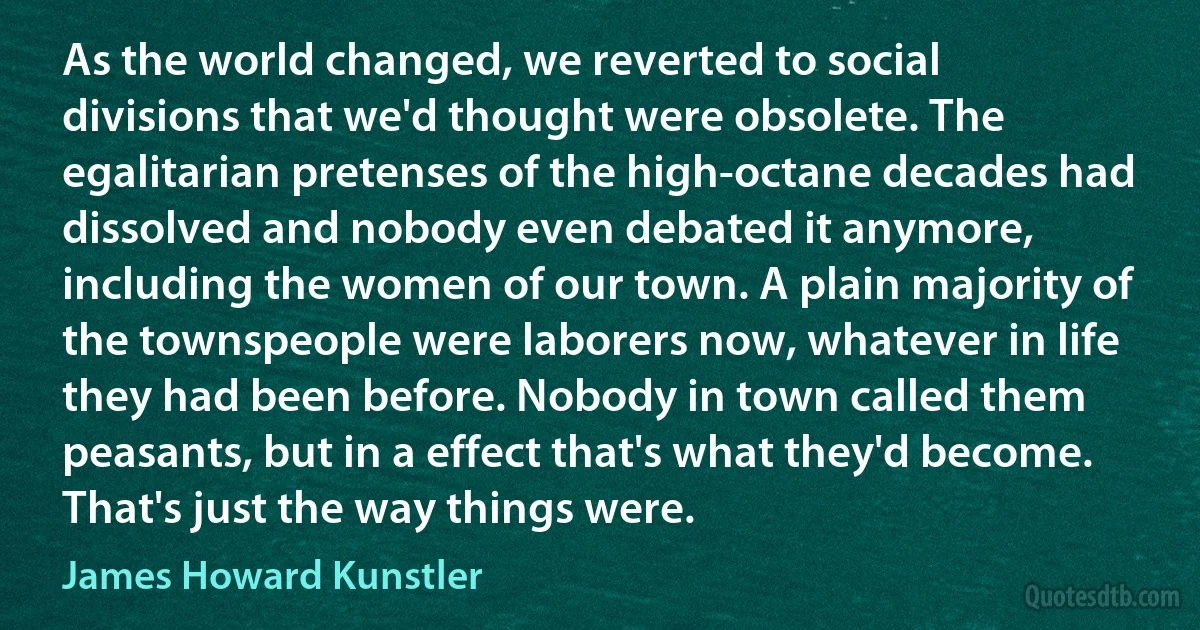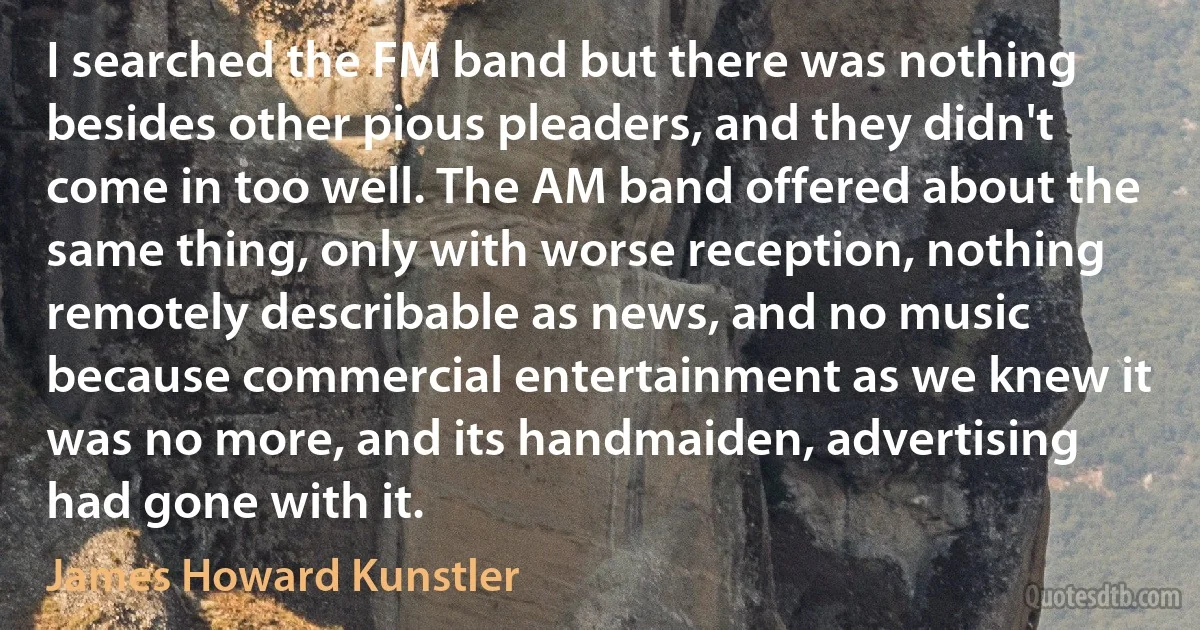James Howard Kunstler quotes - page 2
We regarded opium as a godsend. It did not develop into an illicit trade, though. There was no legal prohibition, no police running around trying to suppress drugs, driving up the price artificially, and no marketing system. There were no distant markets to send it to because shipping anything was slow at best and often unreliable, and travel was something you just didn't do anymore. Anybody could grow their own poppies or buy raw opium paste from one of the growers. Farmers made more money growing raspberries or asparagus. They grew poppies as a public service. A few people took to smoking opium, but those with an extremely apathetic attitude toward survival tended not to last long in the new disposition of things.

James Howard Kunstler
In the early twenty-first century farming had all but died out here. We got our food from the supermarket, and not everybody cared where the supermarket got it as long as it was there on the shelves. A few elderly dairymen hung on. Many let their fields and pastures go to scrub. Some sold out to what used to be called developers, and they'd put in five or ten poorly build houses. Now, [...] there were far fewer people, and many houses outside [the] town were being taken down for their materials. Farming was back. That was the only way we got food.

James Howard Kunstler
In a world that had become a salvage operation, the general supply evolved into Union Grove's leading industry. When every... useful thing in town had been stripped from the Kmart and the United Auto, the CVS drugstore, and other trading establishments of the bygone national chain-store economy, daily life became a perpetual flea market centered on the old town dump.

James Howard Kunstler
You could argue people are generally better off now mentally than they were back then. We follow the natural cycles. We eat real food instead of processed crap full of chemicals. We're not jacked up on coffee and television and... advertising all the time. No more anxiety about credit card bills.

James Howard Kunstler
I lay awake... listening to the rain drip from the eaves and thinking of the big map that hung from the top of the chalkboard in my primary school in Wilton, Connecticut, so many years ago, back in the days of cars, television, and air-conditioning. The states on this map were muted tones of pink, green, and yellow. Over it hung the flag that we pledged allegiance to every single morning. "One nation under God, indivisible..."

James Howard Kunstler
As modern interpolators... say, the bubonic plague winnowed down Europe's population to a scale more congenial with its resource base. After that big first wave of the disease, [the] land was cheaper and human labor better rewarded. Eventually, more food got around. Incidentally, the plague provoked nostalgia for the classical antiquity of Greece and Rome, especially among the scholars of Florence, launching the extravaganzas of the Renaissance [which led to the Age of Exploration and the Scientific Revolution], the Enlightenment [which led to the Industrial Revolution which, in turn, led] [...] eventually [to] our own pageant of techno-supremacist Modernity [which led to the problems we face today].

James Howard Kunstler
It has been... hard... to make sense of the gathering forces that will fundamentally alter the terms of everyday life in ...society. Even after the terrorist attacks of September 11, 2001, that collapsed the twin towers of the World Trade Center and sliced through the Pentagon, [...] [we are] still sleepwalking into [an uncertain] [...] future. We have walked out of our burning house, and we are now headed off the edge of a cliff. Beyond that cliff is an abyss of economic and political disorder on a scale that no one has ever seen before. [...] The national government will prove to be so impotent and ineffective in managing the enormous vicissitudes we face that the United States may not survive as a nation in any meaningful sense but... will devolve into a set of autonomous regions.

James Howard Kunstler



